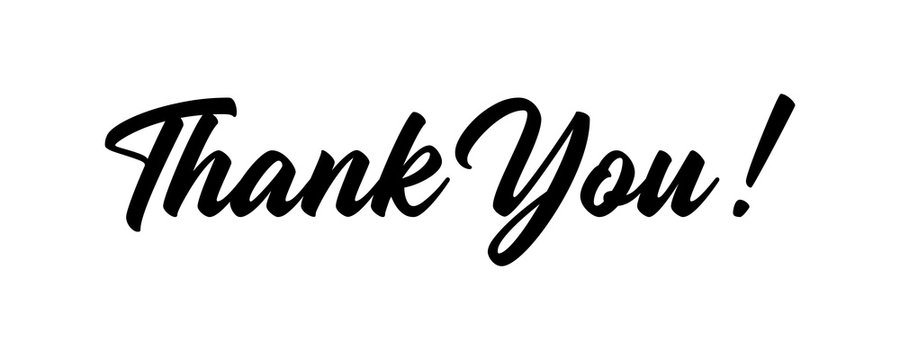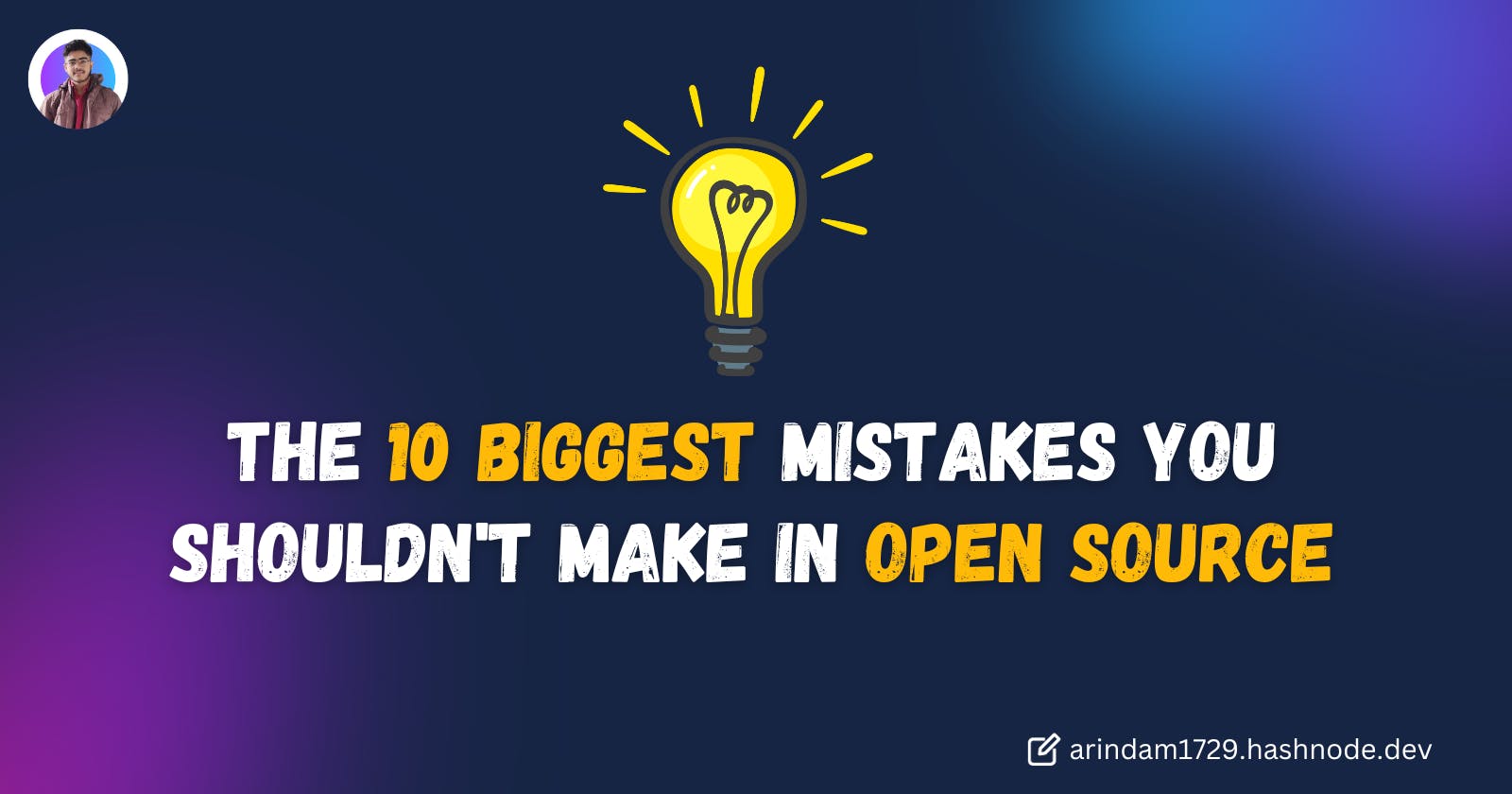The 10 Biggest Mistakes you shouldn't make in Open Source
My Learnings from KubeCon 2022 Detroit
Table of contents
- Introduction
- 10 Biggest Mistakes!!!
- 1. Not Saying Please & Thank You
- 2. Not Being Considerate & Empathetic
- 3. Thinking Only Code Matters
- 4. Trying to Start Too Big
- 5. Not Doing Your Research
- 6. Not Seeking Mentorships
- 7. Not Attending Meetups & Events
- 8. Not Sharing Your Learnings
- 9. Not Experimenting with Open Source
- 10. Not Making Friends Along the Way
- Conclusion
Introduction
Being a new contributor to open source can be intimidating because you don’t know exactly what is helpful and what could hurt the community and frustrated maintainers. In this Blog, I will share my learnings from the Session by Bill Mulligan & Divya Mohan.

10 Biggest Mistakes!!!
1. Not Saying Please & Thank You
We should remember that the other person on the other side is also a human! we should be curious & show basic decency towards the maintainer. It can be done just by saying "Thank You" And "Please".

2. Not Being Considerate & Empathetic
Human interactions are complicated as Humans are complicated! When interacting with a person from another part of the world we often take it for granted that the other person is always there to help us which is not the case. Maintainers are human too. They also take Holidays. So we have to be nice and empathetic while interacting with them.

Everyone should help newcomers to contribute to the project. We should also follow the code of conduct not only in KubeCon but also in all projects.

3. Thinking Only Code Matters
We often think that only 'Code' Contributions matter but that's not the case. Non-code contributions are equally important as Code Contributions.

There are many ways to make impactful contributions to open source that does not involve contributing code.
- Documentation
- Reporting Bugs
- Organising Events
- Mentoring new contributors
"Collaboration First Code second" ~ Eddie Jaoude
4. Trying to Start Too Big
we often try to start too big. We don't have to contribute 1000 lines in our first PR. It's a lot easier to start with the smaller contributions.
"Every contribution that adds value matters"

5. Not Doing Your Research
Contributors often ask questions without looking around at what's already present in the project docs which is quite annoying for the maintainers. Before asking such questions we should do the following steps:
- Read the README.md .
- Look at the pinned items in Slack.
- Attend Meeting.
- Check the CONTRIBUTING.md .

6. Not Seeking Mentorships
"Community thrives when all the members thrive"
When we go about this journey we are bound to require help like everyone. It's not like a lonely journey where you have to go all alone and reach the top. You'll get more value by talking to someone over reading the documentation. Humans are able to bring more value than documentation ever could.
In Open Source there are many mentorship programs:
- Digital Ocean Hacktoberfest.
- Google Summer of Code (GSoC)
- MLH Fellowship.
- Google Season of Docs (GSoD)
- Outreachy.
Bonus: You'll also get a stipend in this program.

7. Not Attending Meetups & Events
It is also important to meet people in person. Meetups and Events are great ways to find Mentors and build One on one connections. They can help us in our careers in future.

8. Not Sharing Your Learnings
Learning in Public plays a major role in our careers. It helps us to build our Network, and connect with like-minded people. We share our learning via blog/video/tweet/threads/Newsletters which will eventually help others try who have less experience than us. It's all about sharing what you know and learning from others.
"Our Network is Our Net Worth"
9. Not Experimenting with Open Source
We should explore various fields in Open source. Every Meetup/Event will grow interest in new fields. We should have the hunger to learn new things. It gives us so many opportunities to grow both in our careers and lives.
"Open Source is all about choosing your own adventure"

10. Not Making Friends Along the Way
Last but not the least! We Should make friends along the way. It also helps to solve problems. Having a community around you means you get to learn, grow & have fun.
Conclusion
Thank you for reading this Blog. Hope you learned something today! If you found this guide helpful, please like, share, and follow us for more blog posts like this in the future.


